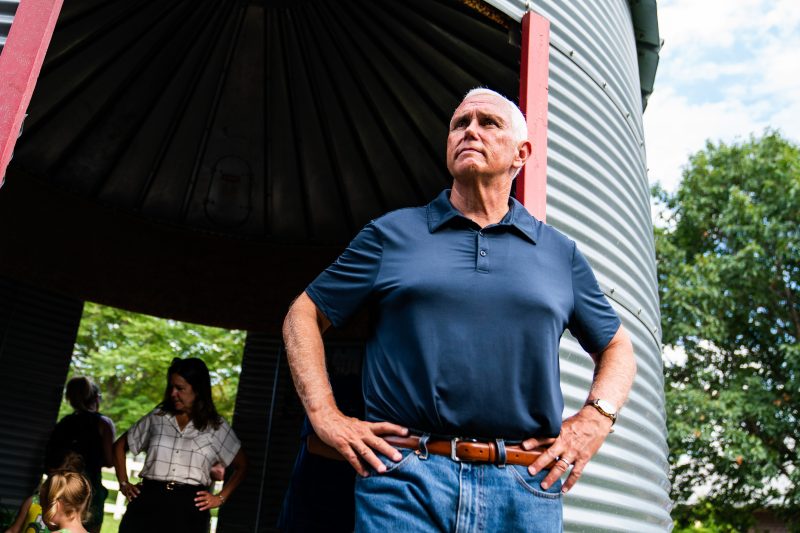Mike Pence was never going to win the 2024 Republican presidential nomination. If space aliens arrived on earth the day before the Iowa caucuses and kidnapped every single declared candidate except the former vice president, he would still probably have come in second, with just about any other Republican in the country edging him out after launching a campaign at midnight.
It’s not just that Pence was unpopular with Republicans, though he was. It’s also that his political identity is intertwined with Donald Trump’s, first as the former president’s sycophantic enabler and then as the guy unfairly maligned as the proximate cause of Trump’s removal from office.
Pence announced his candidacy in June anyway. And, very predictably, he announced his withdrawal from the race this weekend. He lasted 145 days.
This is about what you’d expect of a candidate who didn’t make it to Iowa. Since 2000, Republicans in contested primary contests who have left the race before Iowa dropped out about 91 days before the caucuses after campaigns lasting about 160 days. Pence left about 80 days before the caucuses.
To date, about a third of the original 2024 Republican field has dropped out. That, too, is normal; since 2000, an average of one-third of the GOP field in a contested primary doesn’t make it to Iowa. Their campaigns were, on average, about 130 days long. That’s relatively short; candidates who didn’t make it to Iowa since 2000 generally have had campaigns that lasted about 160 days.
You may be somewhat bewildered by this announcement that already a third or only a third of the GOP field has already bowed out. It depends, of course, on whom you count as a Republican candidate.
Technically, there are more than 270 Republicans who’ve filed to seek the GOP nomination. Some subset of those candidates are considered at least putatively viable, using benchmarks that are often nebulous and fungible.
Maybe you don’t consider North Dakota Gov. Doug Burgum a viable candidate; maybe you do think that Kandy Kaye Horn is. There’s some subjectivity to it, admittedly. I mean, as stipulated at the outset, Pence was never going to win the nomination. So why include him in the mix in the first place? It’s a debate for another day.
For now, we simply observe that the Republican field is narrowing as we’d expect, with candidates who have no shot at the nomination running out of cash and running out of options. That it’s happening now to this percentage of the original field is very much in line with the past several nominating cycles.
That it happened to Pence is very much in line with what any rational observer would have expected.

